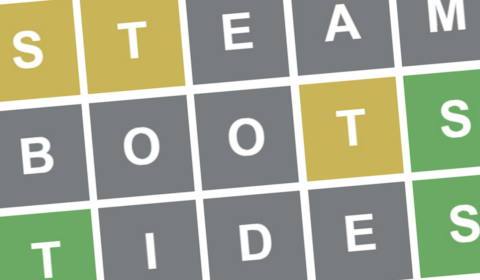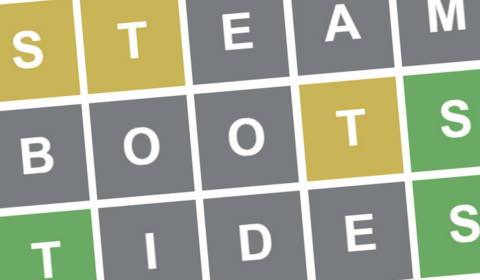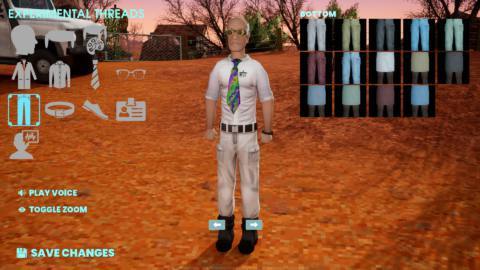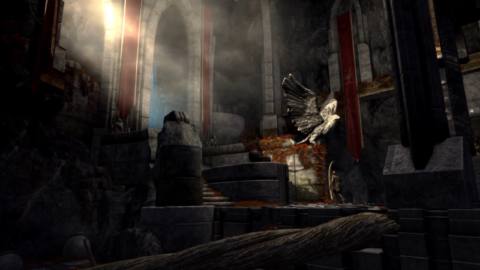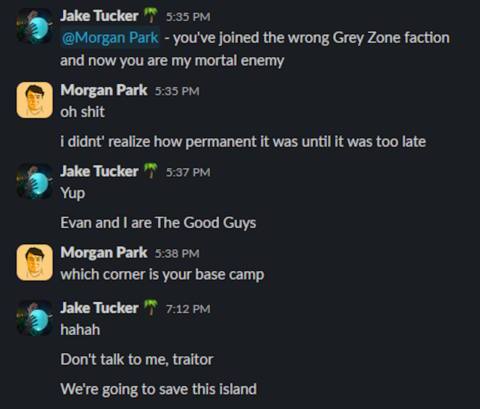Anomaly Agent feels like a tie-in game for an ’80s movie that never existed.
The first game from developer Phew Phew Games, Anomaly Agent starts with a bang. You’re dropped into the action mid-mission, your boss harping at you over the radio to stay focused while interdimensional anomalies crop up all around you. You play as Agent 70, a gangly fellow dressed all in white, and you belong to TDAY, a group of agents tasked with investigating fractures in the space-time continuum that threaten reality itself. The first anomaly you encounter has you battling hordes of enemies along with a giant orb monster that can flip gravity and make you fight on the ceiling. Shortly after, a futuristically-dressed figure called the Artist pops up just long enough to hint at a wider story before disappearing again—but if you’re anything like me, you’ll be too busy punching your way through robots and clones and orbs to take much notice of the larger plot.
Anomaly Agent's combat starts simply, with just a single melee combo and the ability to throw a business card to stun enemies. Quickly, though, you get a gun and the ability to parry, adding necessary complexity to fights in a game that is, outside of some fine-enough platforming sequences, mostly about the brawls. Everything feels tight and satisfying, especially that parry—you really feel its impact every time you pull it off, stunning enemies and leaving them open to your ever-increasing arsenal of combos. You gain new combat tools at a steady pace, ramping up the complexity just enough to keep each new stage feeling fresh.
Bosses are a highlight, too. One of the first, a wrestler named The Wrestler (keep it simple, I always say), shakes things up by jumping deftly around the arena, requiring well-timed dodges and patience on the part of the player, as you look for your chance to get a few hits on him in between his flashy moves. The fight is broken into three phases, and should you die (which I did, repeatedly), you get dropped back at the start of the current phase after a speedy reload. Everything in Anomaly Agent feels built for this kind of speed, always keeping you in the action as it shuttles you from set piece to set piece. This is a game that wants you to be having non-stop fun.
When it comes to atmosphere, Anomaly Agent leans on its synths. The soundtrack overflows with upbeat tunes that wouldn’t feel out of place in an '80s action movie. There's a rooftop chase made absolutely pulse-pounding by its high-BPM backing, and an early stage set in a bar where everyone is psychically compelled to dance is coupled with a bop that creates a similar effect in the player.
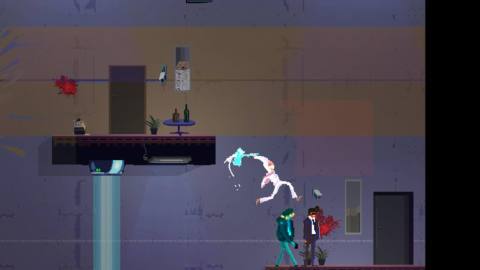
Perhaps it’s obvious by now that Anomaly Agent is no self-serious cyberpunk tale. From the get-go, it's a quippy game, with dialogue regularly lampshading the absurdity of its multidimensional crises. While it occasionally misses the mark (I don't know if the game needed quite as long a sequence of kicking a farting character from rooftop to rooftop, for example), the overall package is charming in its silliness.
When you first encounter the upgrade station, it demands you feed it money and emotion. Your coworkers celebrate your successful mission by giving you… a used bag. An enemy spy at your base gives the game away with absurdly suspicious dialogue, while Agent 70 remains oblivious—or possibly just uninterested. There’s a running gag where your timespace meddling keeps making your boss shrink and grow in size.
There’s a hint of Double Fine to it all, particularly when the silliness sometimes belies a more serious pathos going on beneath. That farting dude? He’s actually really worried that his coworkers don’t take him seriously. He, uh… yeah, he probably should be, actually.
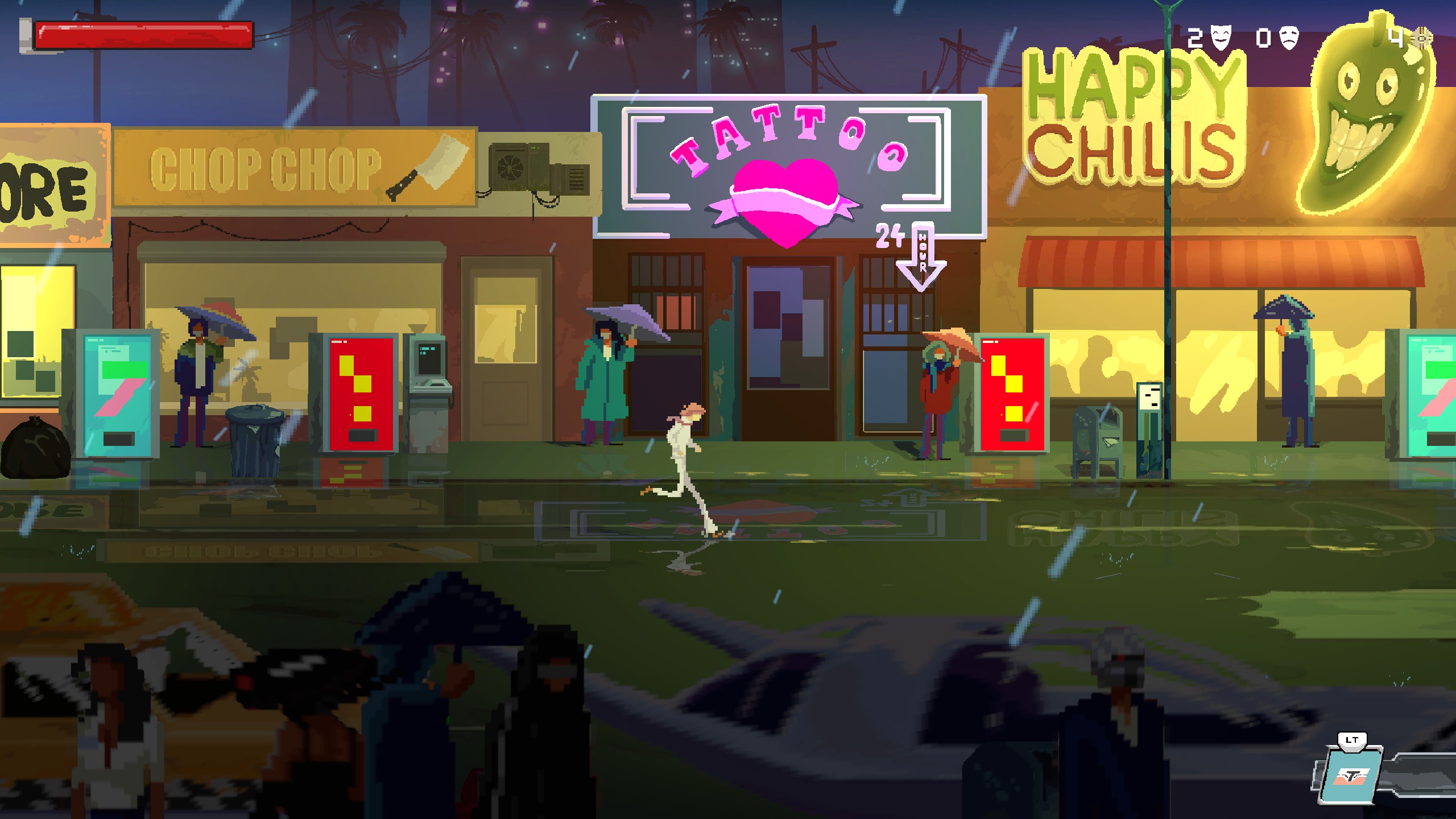
But the most interesting thing about my time so far with Anomaly Agent has been its upgrade system. There’s a traditional set of boons you unlock by spending currency dropped by enemies, but alongside that there’s an upgrade path that is entirely related to dialogue choices. If you make a character happy by picking certain responses (highlighted in yellow), you’ll get a resource that will go toward upgrading your health. If you’re a jerk (or as I thought, just being funny) you’ll upset the character, giving you instead a resource you can put towards improving your combat abilities. It’s a clever and unexpected system for a game of this scope, even if we’re not talking Baldur’s Gate 3 levels of narrative consequence.
I’m excited to spend more time with Anomaly Agent to see through its story, which involves hunting down four reality-troubling bosses in total—I've only wrangled with two so far. At this stage, combat has evolved to include combos where you mix melee with ranged combat, and I’ve put points into increasing my parrying capabilities—resulting in fluid fights that feel almost Sekiro-esque. Between its catchy soundtrack, charming sense of humor, and satisfying action, Anomaly Agent makes a good case for keeping '80s nostalgia going a little longer yet.

